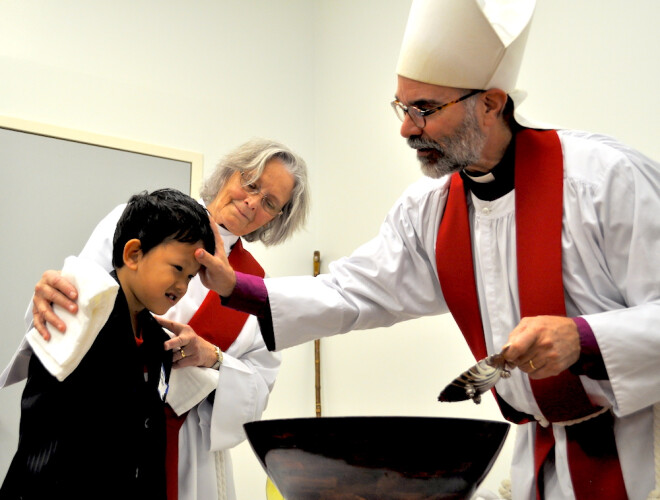Baptism in the Episcopal Church - What We Offer and What We Share

It ought to be a shame that down every Main Street are dozens of different denominations. Christ means His Church to be one. But we can take some solace in the fact that many of the Churches, at least those who agree to infant baptism, recognize one another’s sacramental act. If you become a Roman Catholic you are not re-baptized (and vice versa). Baptism at least is in large measure ecumenical, a crucial vestige of our undivided past (and future).
However, in our Prayer Book there was a deliberate effort to reclaim the full baptismal process which we see in the early Church. Emphasis is placed on the ‘baptismal covenant,’ both the Creed itself and some promises that describe our common life. So baptism is reclaimed as an act of the whole people of God. And the close connection between confessing the faith, being involved in service and mission, and upholding one another in prayer is underlined. We may not have lived up to all of this yet (an argument to continue using our present book!), but the directions it points us are valid. This centrality of the sacrament as entailing a covenant reaffirmed by the community as a whole is a distinctive contribution of ours. (We may also see evidence of it in the resources for the catechumenate which is found in the Book of Occasional Services, though used more rarely).
Read the rites for catechumens in the BOS.


